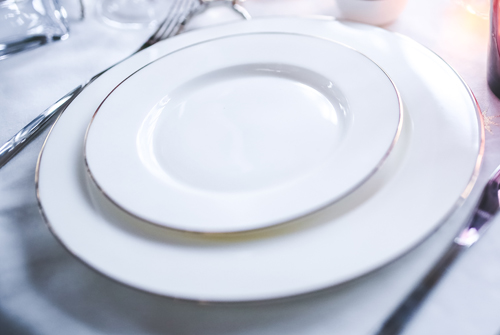
BRIDIE KERSTEN looks at some of the issues raised by fad diets…
Dieting is as controversial as it is common. In many societies, including our own, it is commonly seen as a rite of passage for the majority of the population to explore different eating methods and patterns, otherwise known as dieting. And as our Australian waistlines expand, the diet market grows with it. The media loves to make it look like weight gain is our fault so that clever marketing can pile on our guilt to sell us products and services that rarely ever work.
Further to this, as a society, we will often pick up a diet and create a trend around it. Which in some cases isn’t so bad as it brings healthy eating and good food choices back into the spotlight. The reason it can be dangerous is that humans are designed very uniquely and no one way of eating is going to suit every single person.

WHAT ARE YOU PUTTING ON YOUR PLATE?: Bridie Kersten says fad diets can be dangerous due to the uniqueness of the human body. PICTURE: www.pexels.com.
“[A]s a society, we will often pick up a diet and create a trend around it…The reason it can be dangerous is that humans are designed very uniquely and no one way of eating is going to suit every single person.”
An example of this is the paleo diet which removes dairy, grains and legumes from the diet and instead includes plenty of vegetables, meat, nuts, seeds and fats. While this may not sound incredibly outrageous, it has removed two food groups: dairy and grains (legumes fall under the vegetable category). When it first became trendy, thousands of people adopted this way of eating and were seeing amazing results, weight loss being one of them. However, barely a year went by before articles started being published in medical journals across the world showing that maybe it wasn’t as amazing as its following described. While it certainly suited a lot of people and continues to change lives, it is definitely not a cure all and can create complex health issues in many people.
Fad diets are often characterised by promises to produce dramatic results quickly. This is often achieved by extreme dietary restrictions and very specific rules around food. This can create short term results but what people are often seeing is not sustainable long-term without lifestyle change. Fad diets are also characterised by their tendancy to leave the participant with even more weight than when they began. This is often because their ideals and concepts are not achievable or even recommended in the long term. This is why a lifestyle change instead of constant dieting is the only way to see actual health benefits.
On the other end of the spectrum we have the clinical use of diets for the treatment of certain illnesses and conditions. For example, a diet called the ‘Mediteranean diet’ has been proven to be a more effective treatment of depression than anti–depressants. A diet called the ‘DASH diet’ consistently beats every pharmaceutical on the market for reducing blood pressure and the ‘ketogenic diet’ is proving to be an incredible tool for weight loss where it is physically necessary for health. What is crucial to their success though, is that they are never utilised unless under the direct supervision of a health professional (hint: that rules out a lot of them, including that glamorous fitspo model you follow on instagram).
The final thing to remember is that not many fad diets will let you in on the biggest secret of all: healthy is not a size. Sometimes with health comes weight loss and with weight loss comes health but they are not dependent on each other, which all the companies making money out of fad diets never want you to know.
Bridie Kersten is a registered nutritionist with an advanced diploma in nutrition and a Bachelor of Health Science (biochemistry and nutritional medicine).





